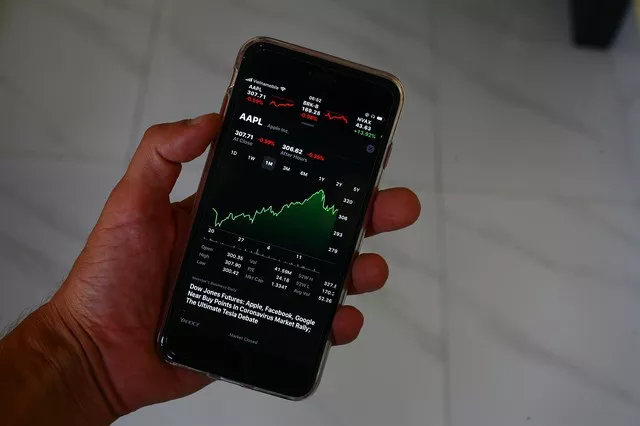Futures contracts represent a vital component of global financial markets, providing investors with opportunities to manage risk and speculate on price movements across various asset classes. However, participation in futures trading is not open to everyone. Regulatory bodies impose eligibility criteria to ensure that only qualified individuals and entities engage in futures trading activities. In this article, we delve into the who, what, and how of futures trading eligibility, shedding light on the participants allowed to trade futures contracts.
Individual Investors and Futures Trading
Individual investors form a significant portion of the participant base in futures markets. These investors include retail traders, high-net-worth individuals, and day traders seeking exposure to a diverse range of commodities, currencies, equities, and interest rates. While individual investors are allowed to trade futures contracts, they must meet certain eligibility criteria, such as age and financial suitability, as mandated by regulatory authorities. Additionally, individual investors may need to undergo risk assessment procedures and fulfill margin requirements before participating in futures trading.
Institutional Investors and Futures Trading
Institutional investors, including banks, hedge funds, pension funds, and asset management firms, play a pivotal role in futures markets. These entities engage in futures trading to manage portfolio risk, enhance returns, and execute sophisticated trading strategies. Institutional investors often have access to advanced trading platforms, proprietary research, and dedicated teams of analysts to navigate the complexities of futures markets effectively. While institutional investors are allowed to trade futures contracts, they are subject to regulatory oversight and may be required to comply with specific reporting and disclosure requirements.
See Also: Why buy futures instead of stocks?
Proprietary Trading Firms and Futures Trading
Proprietary trading firms, also known as prop shops or trading houses, specialize in trading financial instruments, including futures contracts, using their own capital. These firms employ skilled traders who leverage advanced technology and quantitative strategies to generate profits from short-term price movements in futures markets. Proprietary trading firms are typically registered with regulatory authorities and must adhere to strict risk management protocols to mitigate potential losses. While proprietary trading firms are allowed to trade futures contracts, they operate within a regulated framework and may face limitations on leverage and position sizes.
Commodity Producers and Futures Trading
Commodity producers, such as farmers, miners, and energy companies, utilize futures markets to hedge against adverse price movements in the underlying commodities they produce. By entering into futures contracts, commodity producers can lock in prices for their future production, thereby mitigating the risk of price volatility. Futures trading allows commodity producers to focus on their core business activities while effectively managing price risk in volatile commodity markets. While commodity producers are allowed to trade futures contracts, they must comply with exchange rules and regulations governing position limits and delivery obligations.
Commercial Hedgers and Futures Trading
Commercial hedgers, including manufacturers, retailers, and exporters, use futures markets to hedge against fluctuations in the prices of raw materials, finished goods, and currencies. By entering into futures contracts, commercial hedgers can protect profit margins, secure pricing for future transactions, and reduce exposure to market risks. Futures trading enables commercial hedgers to focus on their core business operations while implementing effective risk management strategies. While commercial hedgers are allowed to trade futures contracts, they must adhere to regulatory requirements and exchange rules governing hedging activities.
Registered Brokers and Futures Trading
Registered brokers serve as intermediaries between traders and futures exchanges, facilitating the execution of futures trades on behalf of clients. These brokers must be licensed and registered with regulatory authorities to operate legally and provide brokerage services in futures markets. Registered brokers play a crucial role in ensuring the integrity and efficiency of futures trading by adhering to industry best practices, maintaining compliance with regulatory requirements, and safeguarding client assets. While registered brokers are allowed to trade futures contracts, they are subject to stringent oversight and must uphold high standards of professionalism and ethical conduct.
Regulatory Oversight of Futures Trading
Futures trading is subject to regulatory oversight by government agencies and self-regulatory organizations (SROs) to maintain fair and orderly markets and protect investors. Regulatory authorities, such as the Commodity Futures Trading Commission (CFTC) in the United States and the Financial Conduct Authority (FCA) in the United Kingdom, establish rules and regulations governing futures trading activities, including eligibility requirements, trading practices, and market surveillance. SROs, such as futures exchanges and clearinghouses, enforce compliance with regulatory requirements and ensure the integrity and stability of futures markets. Compliance with regulatory standards is essential for all participants engaged in futures trading to uphold market integrity and protect investor interests.
Conclusion
In conclusion, futures trading offers a wide range of opportunities for eligible participants, including individual investors, institutional investors, proprietary trading firms, commodity producers, commercial hedgers, and registered brokers. While futures markets provide a platform for managing risk, enhancing returns, and implementing trading strategies, participation is subject to regulatory oversight and eligibility criteria established by regulatory authorities. By adhering to regulatory requirements, maintaining ethical standards, and adopting sound risk management practices, participants can engage in futures trading effectively and contribute to the integrity and efficiency of global financial markets.


